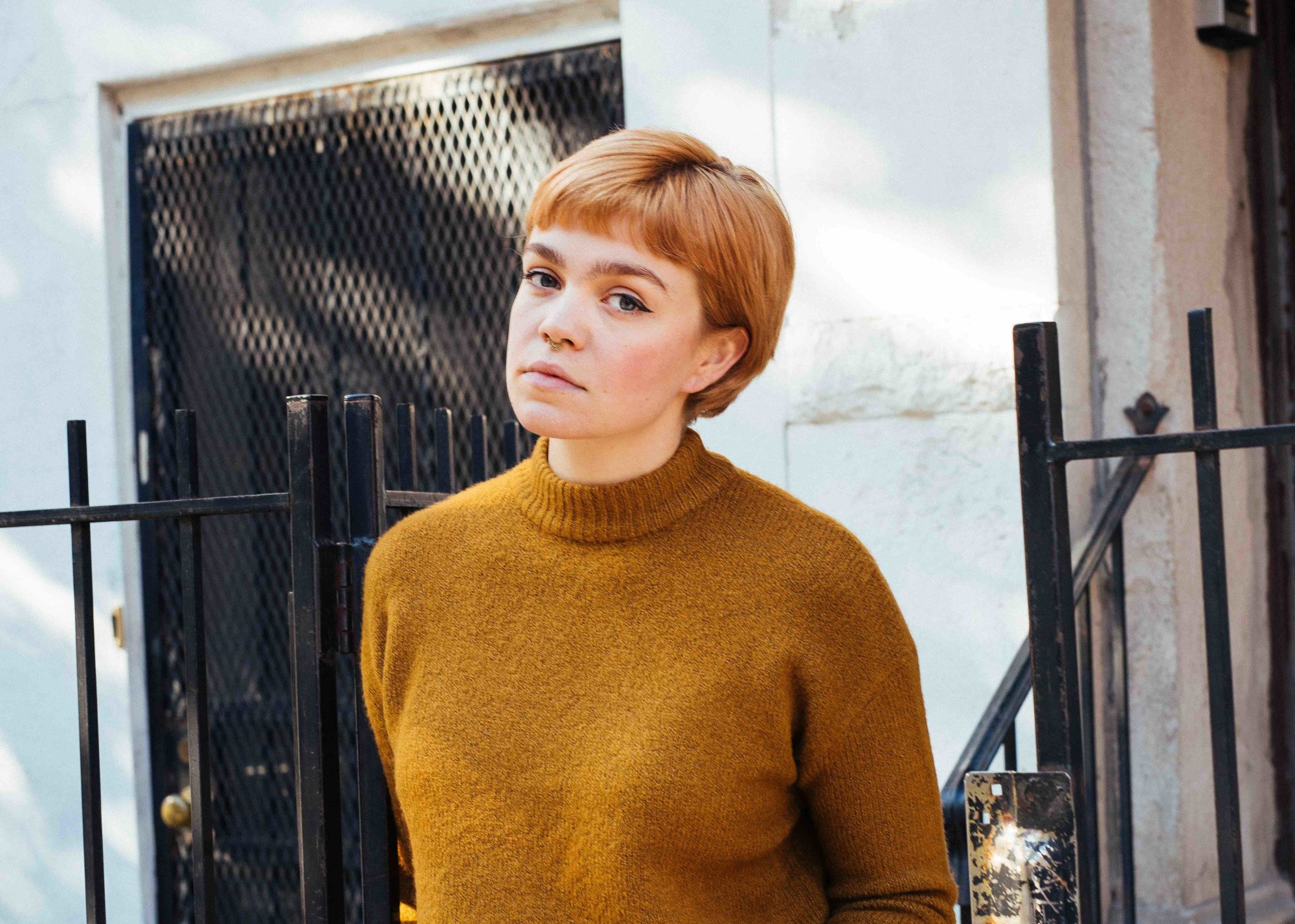Meredith Graves
Age: 28
Occupation: musician, writer, label owner
What is your definition of feminism?
My feminism changes every time I interact with a new thought or experience, something that leads me to think critically about the intersection of gender with all the other ways people are oppressed.
How can music serve to fight for equality?
It can’t, as long as the industry remains 99.9999999999992% dudes doing dude stuff in service and tribute to other dudes. I’m pleased with the emergent splinter cells I see, though, where non-male people are actively shunning that lens and building communities where they can serve each other and learn together, share their experiences, keep each other safe, and create new, dude-free narratives.
I guess my dream answer would be: prominent and privileged male musicians who are given a monopoly on space and voice should use what they’ve been given to discuss global issues related to gender and sexuality. If they wanted to use that space for something meaningful, that would be a great start.
How important is combining art with activism?
For most of us, it’s unavoidable. As long as art, like music, remains predominantly a cis-straight-male scene, any art made by a person who doesn’t fit those parameters is a form of activism. It’s not that you have to be overtly political or run around on stage screaming like I do– you can make quiet, dreamy music or weave or do silent performance art or just insist on existing in volatile spaces, and it’s still an insanely radical act. Giving yourself permission to exist is both activism and a form of art.
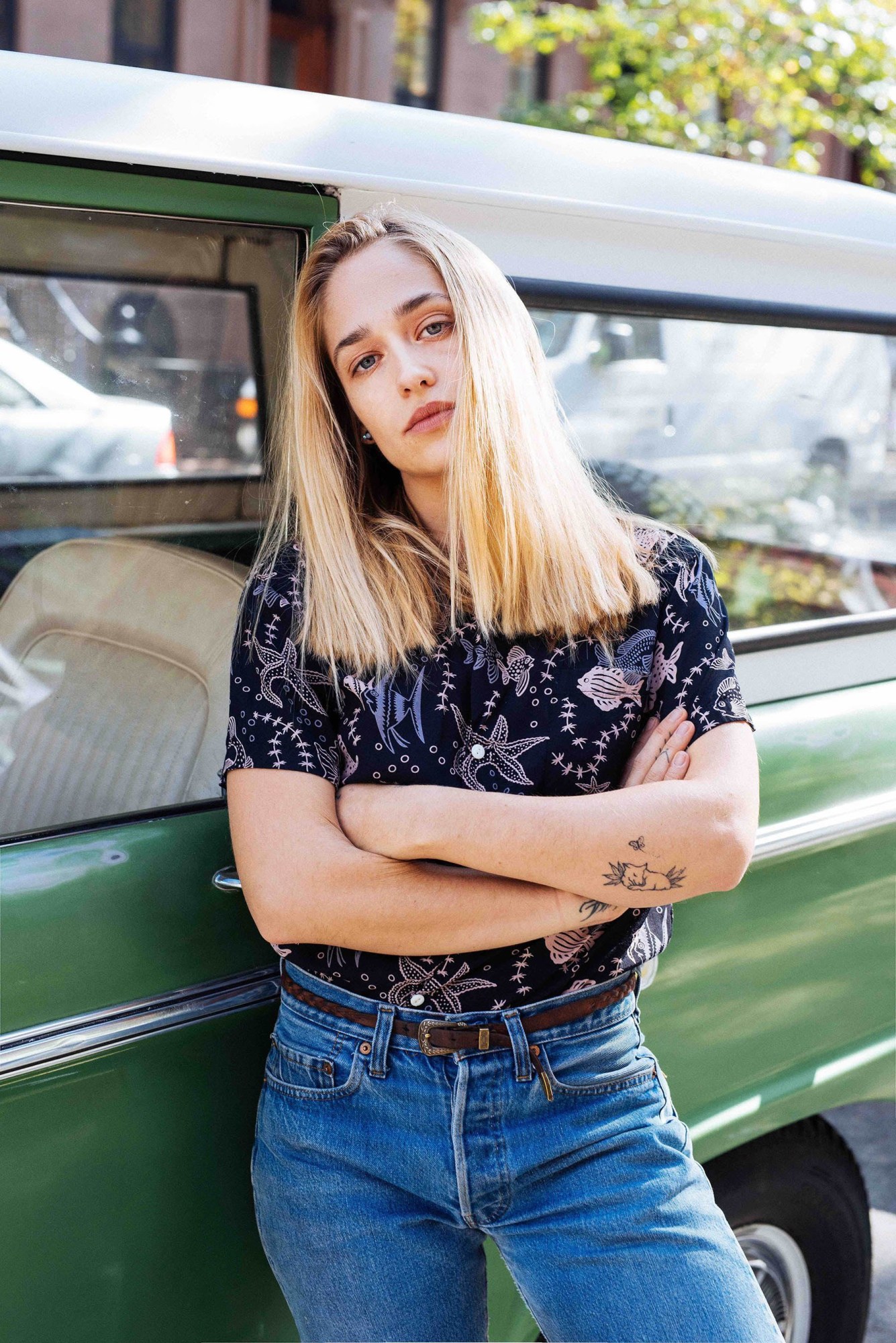
Jemima Kirke
Age: 30
Occupation: artist
What is your definition of feminism?
Feminism is a belief in the equality of the sexes and an awareness that one’s biological gender should not have them bound to a specific set of rules. These rules, which in many ways have not changed since the fucking 50s, serve no other function than to keep society and the patriarchy running in a way it has always been running. But the feminism we need today must consider the effects of race and class on gender oppression.
What is your take on current reproductive health rights?
Sometimes it feels as if people think of the slogan, “Our bodies, our right to choose” as: “I wanna be able to fuck however and whoever I choose whilst being totally irresponsible and not dealing with any consequences.” NO. Choice means having the right to look after oneself and her body. Choice means having access to a Planned Parenthood nearby, to maternal care, gynecological exams, cancer screenings, contraception, sex education and safe and legal abortion. The fact that our laws are putting our bodies, our children and our families in danger is baffling. Astounding.
How did you decide to speak out about your abortion publicly?
I have a close friend who had gotten upset with me when I revealed to someone else in her presence that she’d had an abortion. I remember feeling surprised by that because I truly didn’t understand the embarrassment. It’s not to say that my actions weren’t insensitive, but it made me wonder why some personal stories are acceptable to talk about casually but not the ones about abortion. I wanted to get the ball rolling on diffusing the shame around one’s choice to terminate a pregnancy.
What do you hope will change with reproductive rights for your daughter’s generation?
I hope that the granting of our total reproductive rights will inspire a movement of true sexual freedom for women.That it will begin to erode our shame and that our society will stop telling women what the right way to have sex is. Society and the politics around our bodies are designed to keep us in our place, to keep us smaller, less powerful, less free.

Doreen St. Felix
Age: 23
Occupation: freelance writer, editor at large of Lenny
What is your definition of feminism?
I’m made uneasy by the notion of a universal feminist identity, so the closest I can get to defining my feminism is by picturing the thing as a framework. One that ought to shift in small ways or dramatically, depending on the other contextual factors in someone’s life, like desire, class, geography, spirituality, money, race. So I think my feminism is quite confrontational but also incredibly fluid, an attitude towards living that informs my work as a writer and editor and girl. Sometimes I get the sense we understand feminism as a higher consciousness, something to grow into, but it’s actually an organic mood for some of us; my feminism is endemic.
What is your take on current reproductive health rights?
Health is a complicated state, and I’m not sure we’re addressing all the complexities of what a reproductively healthy person might look like, if the center of gravity of activism has loaded almost entirely on abortion rights. That’s not to say some of us aren’t in danger of losing our right to choose. But abortion isn’t the only issue. And people with uteruses aren’t the only ones affected. From my viewpoint, police brutality is a reproductive health crisis. If pro-choice means the right to have children, then it should also mean that those children should be able to live. I’ve found that black and brown women have an intuitive sense of more expansive reproductive health initiatives, and that’s probably because we are positioned such that we know what unaffordable childcare, poor housing, red-lining, unequal employment, and the list goes on, can take from health.
What role does social media play in women’s health activism?
It seems that social media’s essential contribution to activism writ large is rapid visibility. User-produced platforms like Twitter, Facebook, and even Instagram to some extent, skip over censoring entities like the capital M media and propel information across internet and country borders as nakedly as possible. It’s just one arm of a huge machine, but I think social media’s potential as a tool to talk back to 1) misinformation, and 2) lack of information (consider that Sandra Bland’s crisis of health ultimately leading to death wouldn’t have been known without Twitter) is a new weapon in an old arsenal.
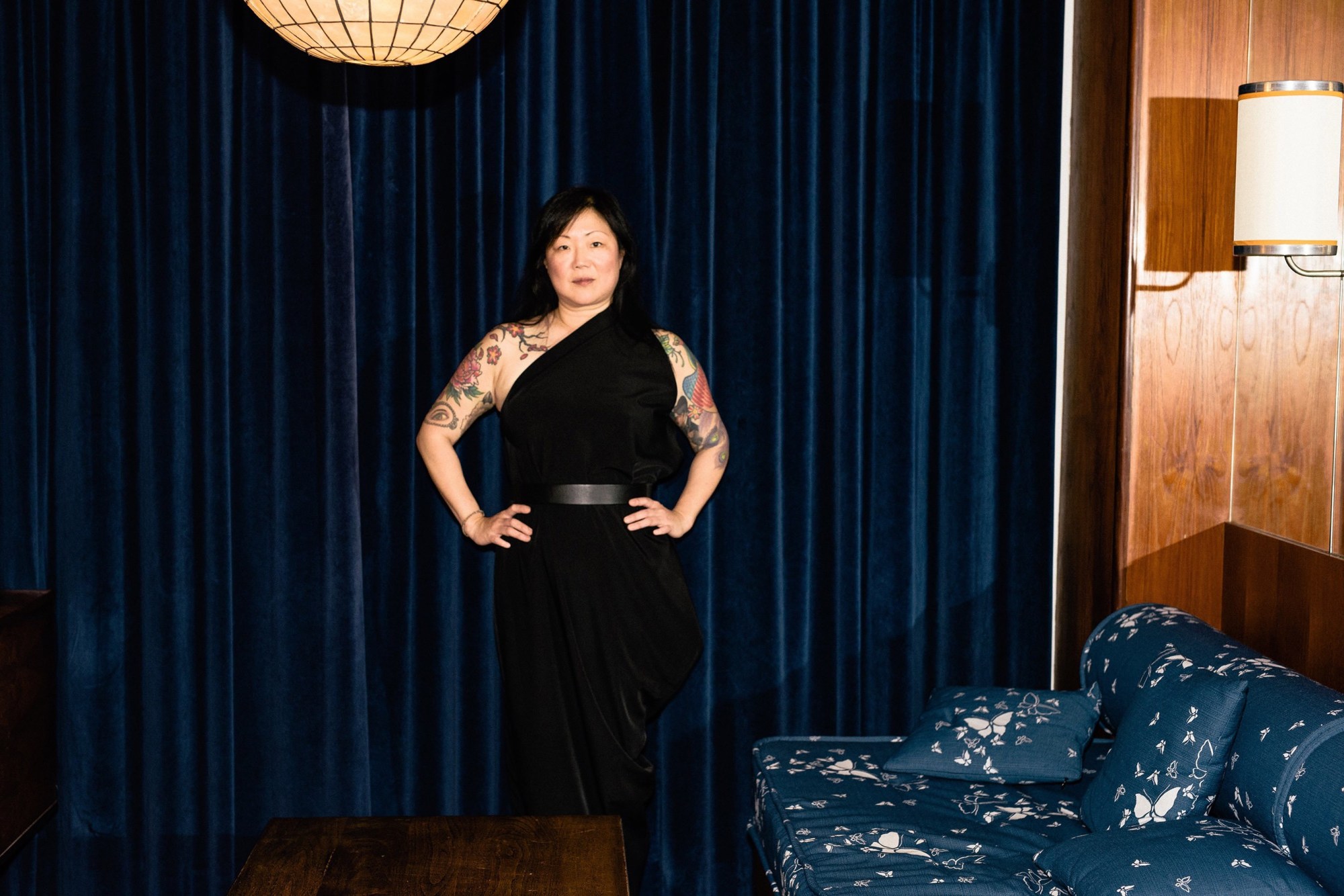
Margaret Cho
Age: 46
Occupation: comedian
What is your definition of feminism?
The belief that women deserve equal rights and the actions we take to realize that equality.
What is your take on current reproductive health rights?
It’s not going well. There’s insane propaganda and lies being spread constantly by the pro-life movement. We are still not being educated about menstrual extraction – a much easier and painless form of abortion. I’ve had one and they can be performed to terminate early stage pregnancies without drugs of any kind. Women are not being told there are options to surgical abortions which are expensive and painful.
How can humor be used to fight for social justice?
We can illuminate a subject by speaking on it and expose the hypocritical, lampoon the ridiculous and demand our rights – all in the name of fun.
What have you learned from the gay community about activism?
We can change the world merely by standing proud and being ourselves and demanding equality.
You’ve been outspoken about your own abortion. How did that experience shape your view of reproductive health?
It hurt more than it needed to. I needed someone to drive me home. I was drugged excessively. It was more than I thought I should have had to pay. Another pregnancy I terminated with menstrual extraction. It took seconds. It was not painful. I didn’t need any kind of medication.
We are not providing this option enough. Women don’t even know about it. We need to make sure women are aware of this option. It doesn’t have to be so hard.
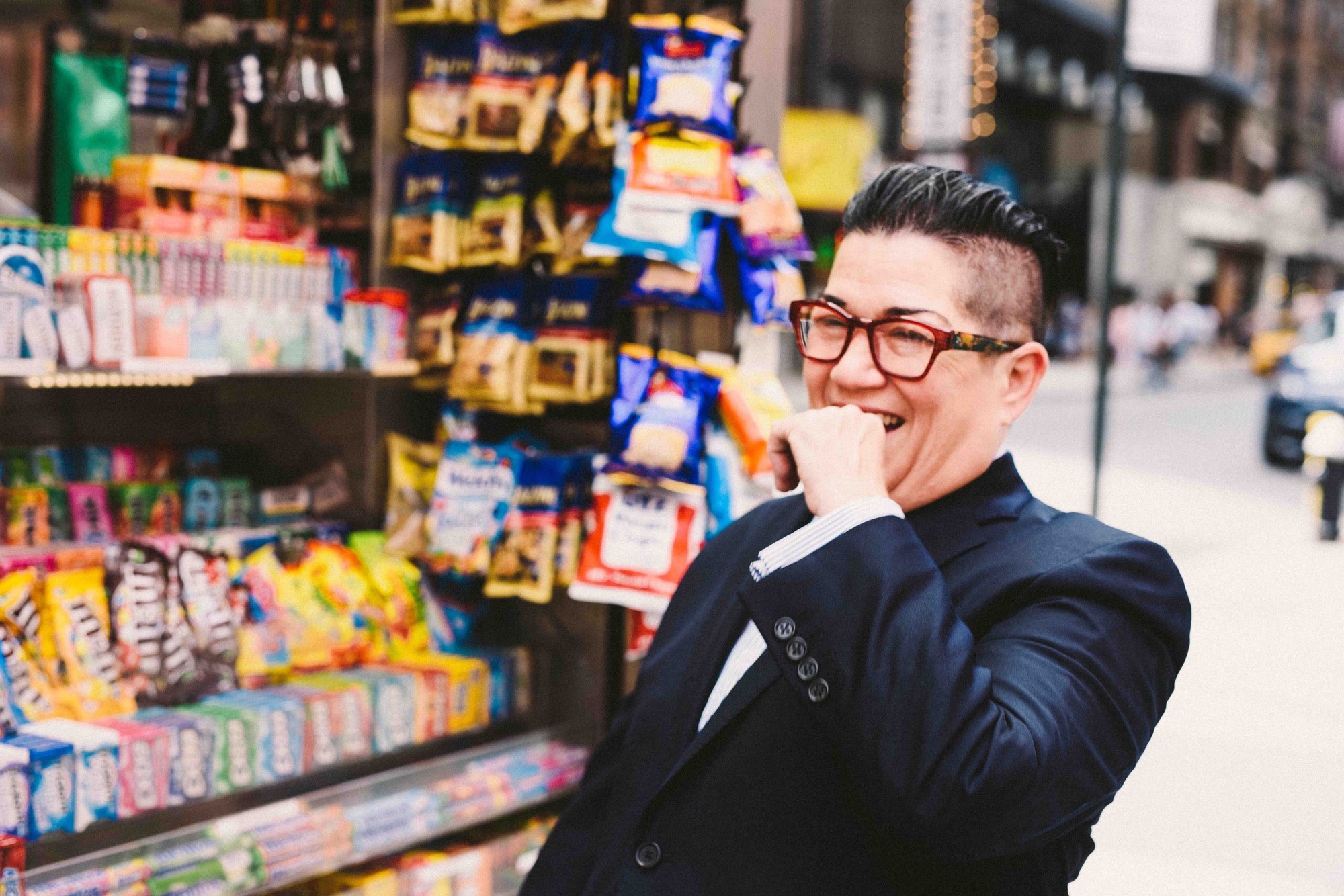
Lea DeLaria
Age: 57
Occupation: comedian, actress, musician
What is your definition of feminism?
Standing tall against the cultural, religious and socially sanctioned oppression of women.
What is your take on current reproductive health rights?
There is a war being waged against women, most particularly poor and working class women. The war is conducted by the Conservative Christian Right Wing #fucktards.
Why do you think the right wing is pushing back so hard against reproductive rights?
Conservatives cannot tolerate change, especially change that usurps their status. The empowering of women to choose what they feel is best for themselves in their lives removes male/ religious dominance… in other words they’re fucked if they can’t push us around.
How are lesbians left out of the reproductive justice conversation? How can it be more inclusive?
Hahahahahaha! Like it’s actually possible to leave lesbians out of ANY political conversation. The idea of the politically correct humorless dyke wasn’t born in a petri dish.
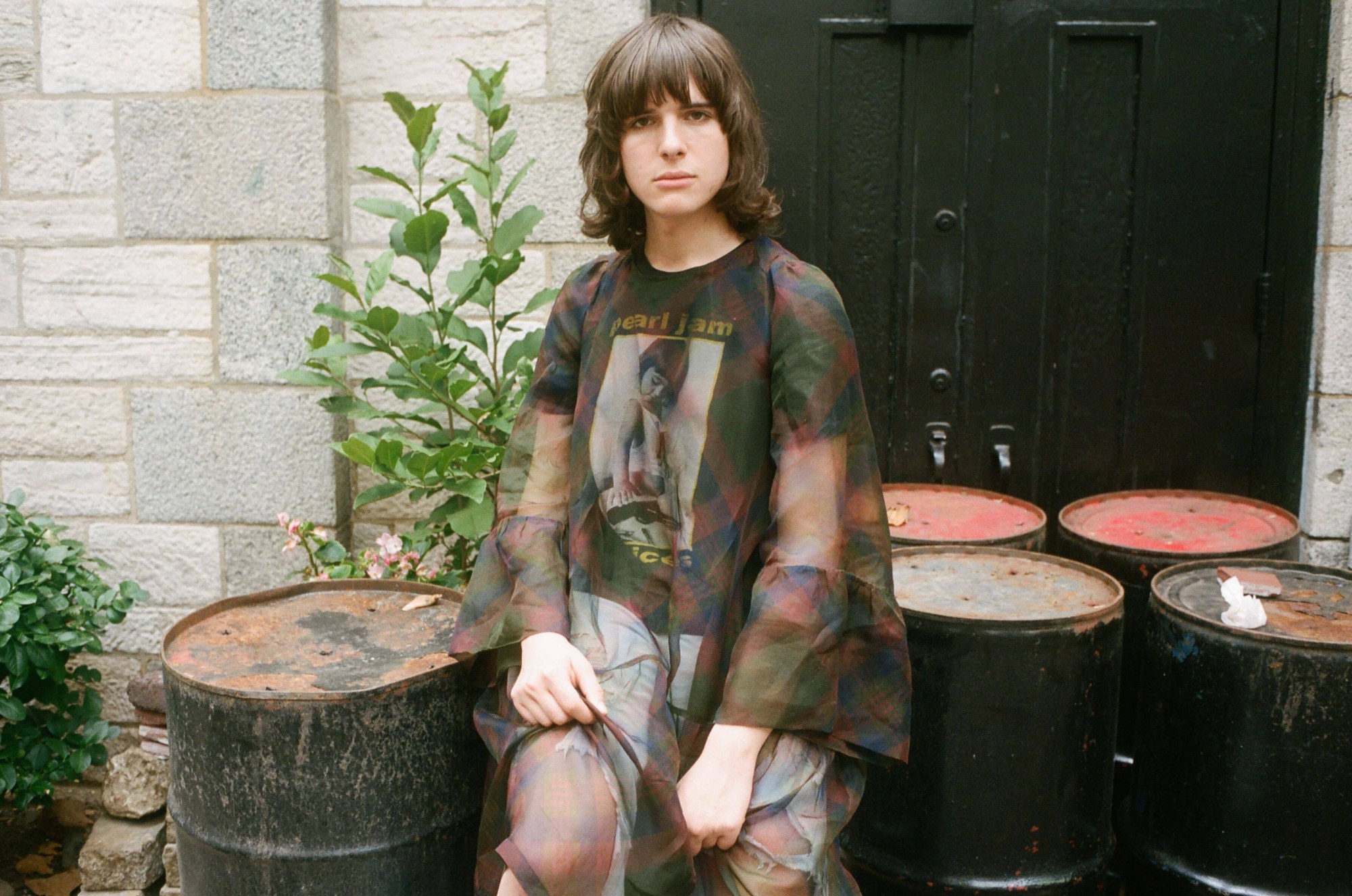
Hari Nef
Age: 23
Occupation: actress, model
What is your take on current reproductive health rights?
I believe that people who can bear children should be able to bear or not bear children on their own terms. I believe that everyone should get to do with her body as she pleases. Reconciling my transness with my feminism becomes tricky in the context of discourse that centers around fertile cisgender female bodies. I stand with the trans women, trans men, and infertile cisgender women with whom I might resonate. Living under the patriarchy, I elected to alter my body with female hormones in order to embody “womanhood” in a rather obvious way. The effects of hormones could keep me safe walking down a New York street, inspire people to call me by the correct pronouns, and allow me to earn a living as a model. Another effect of hormones: infertility. In order to build a “woman’s body” I had to sterilize myself. At the time, this didn’t seem like much of a choice for me–but I wonder what my body might be able to do right now if I lived in a more perfect world. If my gender identity had been affirmed by the people around me without pressure toward medical intervention, would I have needed to go on hormones at all? Are the reasons why trans women are pressured (or instructed) to medically intervene in their gender transition similar to reasons why women are pressured (or instructed) not to have abortions? The experiences of trans and cis women are different, but we can stand together against a patriarchal healthcare system (or world), that frames oppression as prescription.
What is your definition of feminism?
I was brought up to visualize feminism in relation to a gender binary: “women should have the same rights and opportunities as mendo.” These days, I feel as though feminism must interrogate gender itself with an awareness of its myriad social intersections. What does it mean to be a woman, and why? Who gets to decide what a woman is? If one woman is different from another woman, then what unites them as women? White, cisgender women have an institutional history as so-called feminists–but their liberation has proven tenuous, irrelevant, or violent to millions of other women. When experience can vary so radically from woman to woman, is there any point in pursuing a single definition of feminism?
How can the reproductive health narrative be more inclusive of trans issues?
Reproduction is an issue for many trans people, as hormone replacement therapy complicates reproductive capabilities. My doctor warned me that testosterone blockers would render me infertile. He told me that that I could gain my fertility back if I went off hormones, but that the regenerative potential would decrease the longer I was on hormones. He advised me to freeze my sperm before starting hormones, but I was in college and wasn’t sure if I could afford the service or not–which is only available through private bookings. I needed to get on hormones ASAP for mental health purposes, so I began. When I tried to freeze my sperm a few months later, I was already infertile.
I hope that reproductive services for trans folks who wish to medically transition become more available and accessible. If I had easy access to sperm preservation services, I might be able to have biological children someday. I hope that technology will have progressed by the time I am ready to have children, but it was one of the hardest parts of transitioning to say goodbye to my dream of bearing biological children.
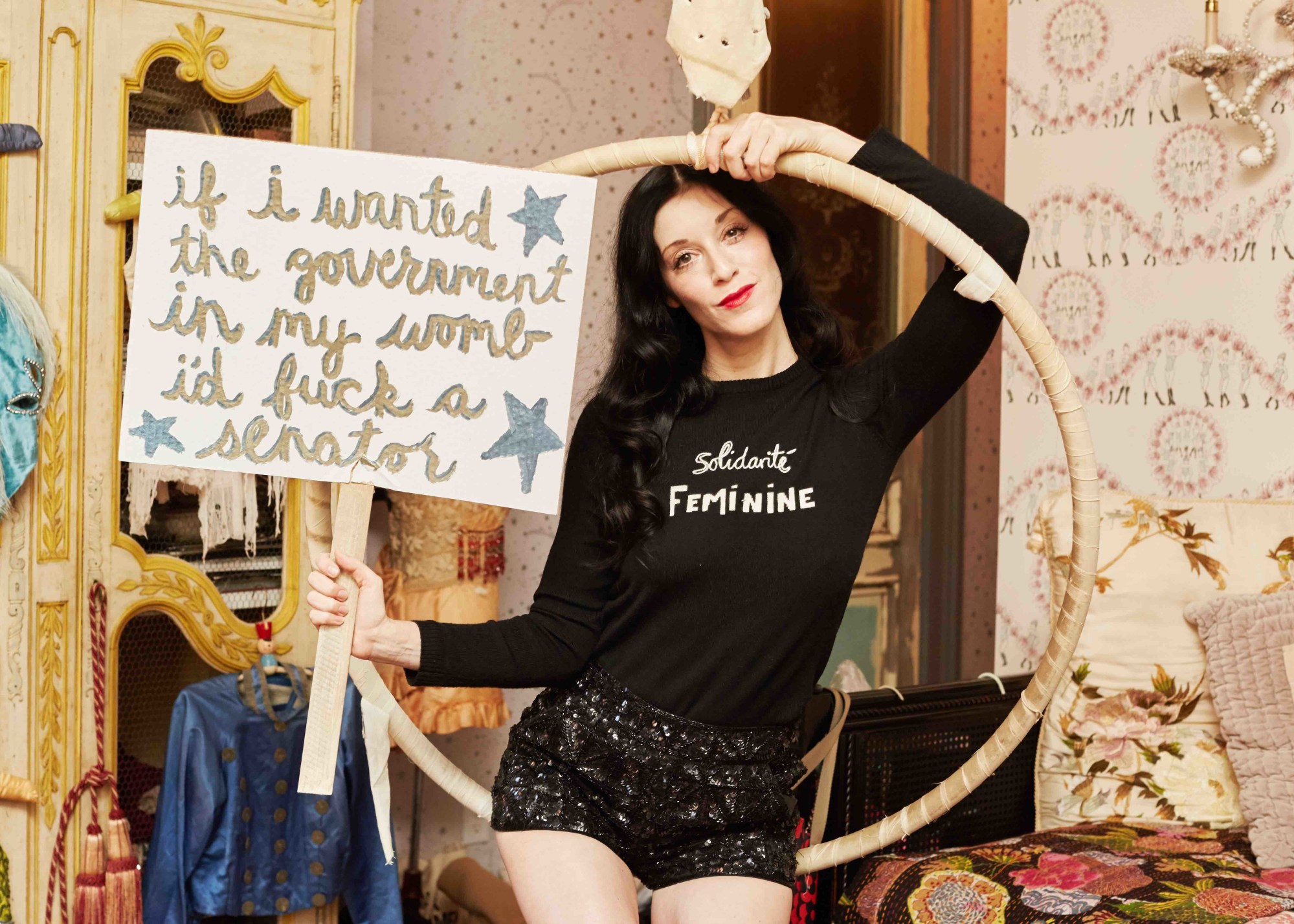
Sarah Sophie Flicker
Age: 42
Occupation: activist, performer, writer
What is your take on current reproductive rights?
It feels as though we are getting pulled back into the 1950s. It’s hard to imagine that the rights I’ve enjoyed my ENTIRE lifetime are suddenly up for debate. Or that my daughter may not enjoy the same rights I’ve always taken for granted.
How can we get young women involved in the reproductive rights conversation?
It’s important for young people to be taught about sexuality, sexual health, birth control, sex and consent. If the next generation is more educated, they will feel more engaged. I also think that boys need to get brought into the picture more.
Why is reproductive justice a mother’s issue?
When, how and if we have children are all part of the reproductive justice framework. Our ability to raise children without the threat of poverty, violence, hunger or intolerance is part of the reproductive justice framework. Our ability to raise our kids and support our families, earning equal pay for equal work, is part of the reproductive rights framework.The closer we look at most issues of inequality, the more we see how they are all connected. When mothers are valued in society, everyone benefits.
What do you want to instill in your kids about reproductive rights and equality?
For my daughter, I worry that she will internalize the messages being sent to her, that she doesn’t have control over her body, that her body is a battleground and that she has no right to dream of a self-determined future. I worry that she will absorb the message that she, and her work, and her ideas are worth less than her male counterparts. I worry that she will take it all to mean that her sexuality is dirty and that her main function is to bear children. For my sons, I worry that this climate enforces not only their privilege, but also steals their right to be vulnerable, that they have the right to control women’s bodies, that equal parenting is uncool. I worry that my efforts to raise feminist boys is being thwarted left and right.
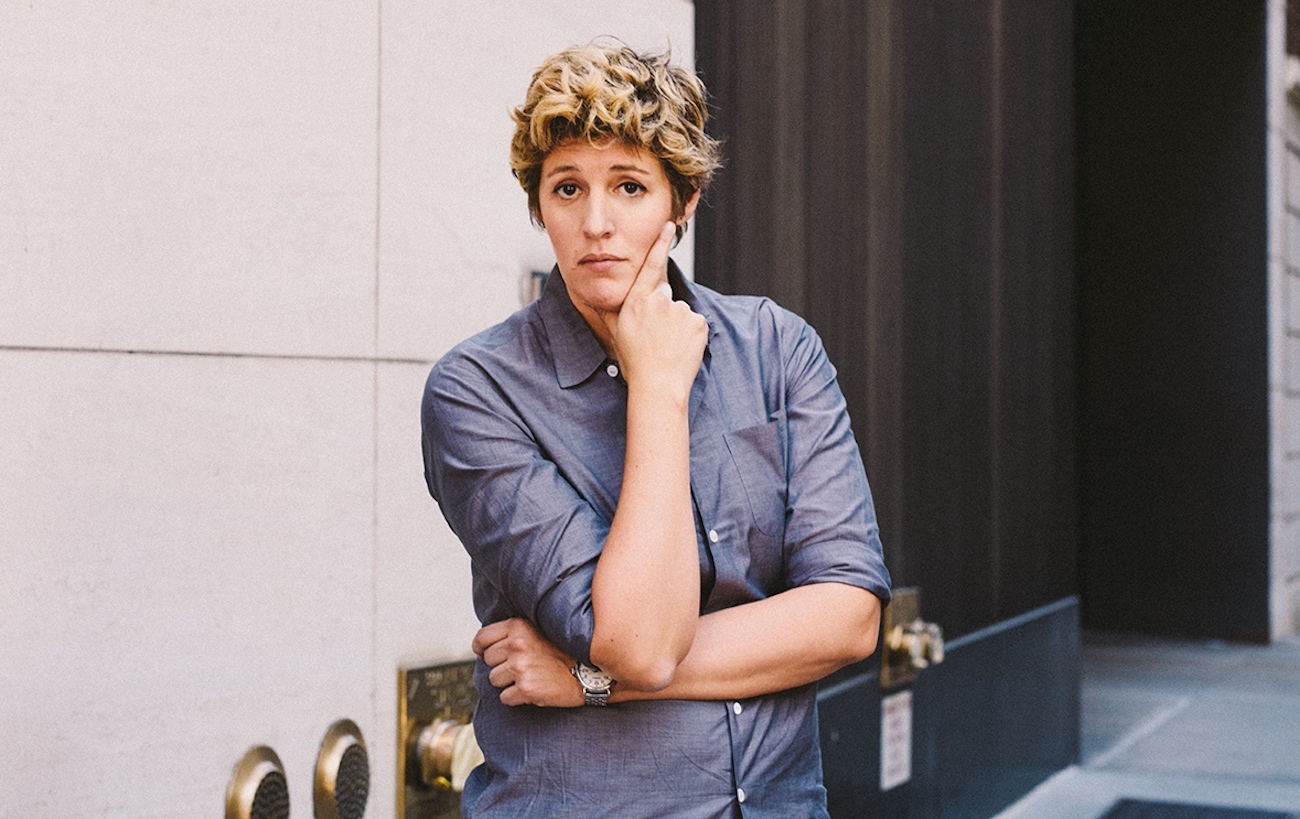
Sally Kohn
Age: 38
Occupation: TV commentator, columnist
What is your definition of feminism?
The belief that women are 100% equal to and should be afforded all the same rights, opportunities and privileges as men. Period. End of discussion. Who isn’t for that?
What is your take on current reproductive health rights?
Reproductive freedom is inextricably linked with the economic and cultural freedom of women. And since health care and access to reproductive care is even more restricted for low-income women of color, reproductive justice is also inextricably linked to racial justice. And it’s impossible to see the attacks in reproductive rights as separate or distinct from other attacks on racial justice, gender justice and economic fairness. Reproductive rights is an essential part of the fight to make all of us, all of our bodies and our lives, more free.
How can we be more inclusive in the reproductive rights narrative?
We need to understand that the attacks on abortion access and contraception don’t happen in isolation, but are connected to white supremacy and misogyny, and cuts around health care and services for the poor and for undocumented immigrants, and the backlash against lesbian, gay, bisexual and transgender liberation. Our movements will be more inclusive when we understand how these struggles are inherently inclusive, connected by the same roots of injustice.
Is being a mother a conflict in being a reproductive justice warrior?
More than ever, I support reproductive justice *because* I’m a mother. I have a daughter. I want her to respect and control her own body, not have it controlled by anyone else—whether that’s another person or right-wing legislators. And if someday she wants an abortion, that should be *her* choice—not mine, not Washington’s, not anyone else’s. I fight for reproductive justice and abortion rights to protect my daughter’s choices.
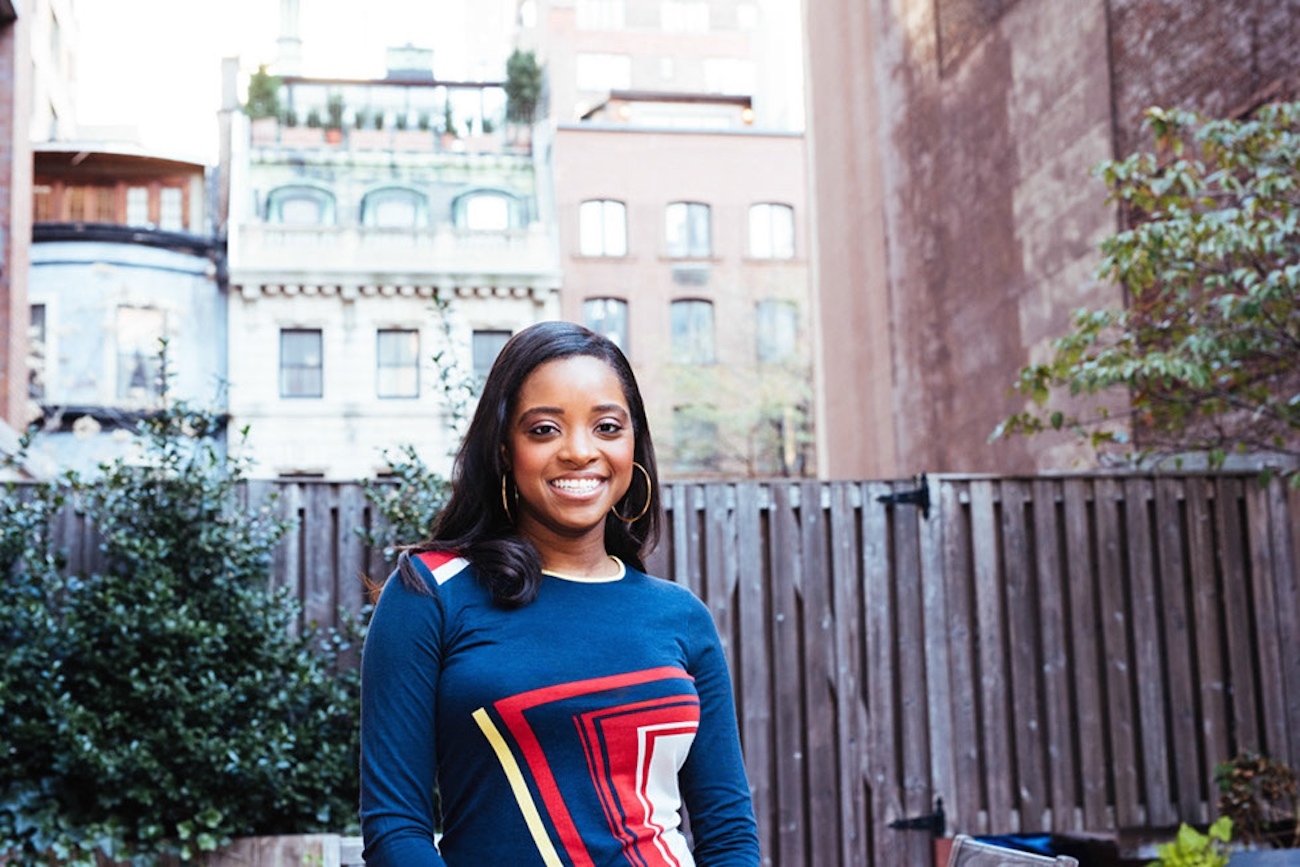
Tamika Mallory
Age: 35
Occupation: president and founder, Mallory Consulting
What is your definition of feminism?
Feminism is the belief that women deserve equal rights and equal access; politically, socially and economically, as men. Feminism has been misconstrued as some sort of anti-men philosophy, but it’s not. To be feminist is to be pro-women; to believe that a woman deserves the same pay, for the same job, as her male counterparts. To believe that rape culture warrants our attention and vigilance. To believe that a young girl can grow up to be anything, and to encourage her to be strong in her convictions. To refuse to allow gender-based generalizations to dictate how we act. The feminism I practice is intersectional – it acknowledges race, ethnicity, economic status and gender identification.
How can we shift the conversation to include the impact of racism on women’s experiences of reproductive health?
Telling our stories and shedding light on how racism is currently impacting women’s health is one of the most powerful things we can do. When I talk about racism in this sense I’m talking about institutional and structural racism specifically. A lack of facilities in low-income neighborhoods of black and brown people ensure that a women has a higher burden to simply seek out medical care. Perhaps she has to drive several miles, facilities aren’t available, or she has to take time off from a job that doesn’t afford her any sick days. The burden created is one that we have to identify and grapple with. We need to tell these stories, draw the correlation, and advocate for change directly to those in a position to do something about it. We shift the conversation by having it, loudly and persistently, and then we organize from there.
How can the reproductive health movement be more supportive of single mothers?
Single mothers have a lot on our plates, our lives don’t necessarily allow us to be hyper involved in various movements and to actively advocate on behalf of our own issues. I would encourage all political movements that address our issues to be mindful of finding ways to make engagement accessible for us. Maybe we can’t necessarily be on the front lines, but that doesn’t mean we don’t want to be engaged, whether we’re talking about climate change or police brutality, economic justice or reproductive health.
Credits
Photography by Katie McCurdy except for Hari Nef and Sarah Sophie Flicker, by Kathy Lo
